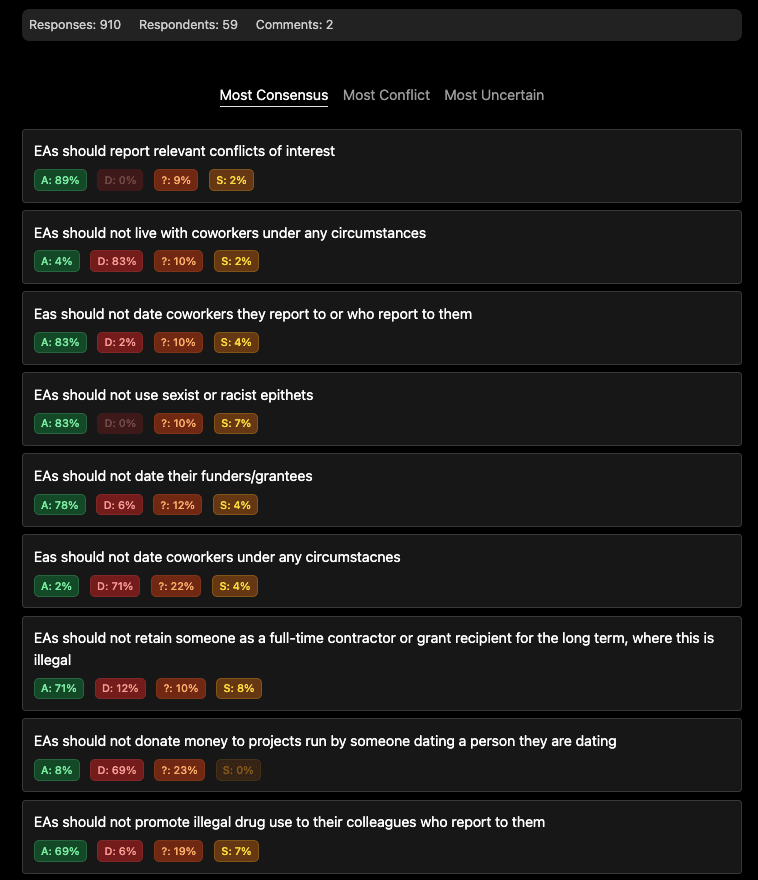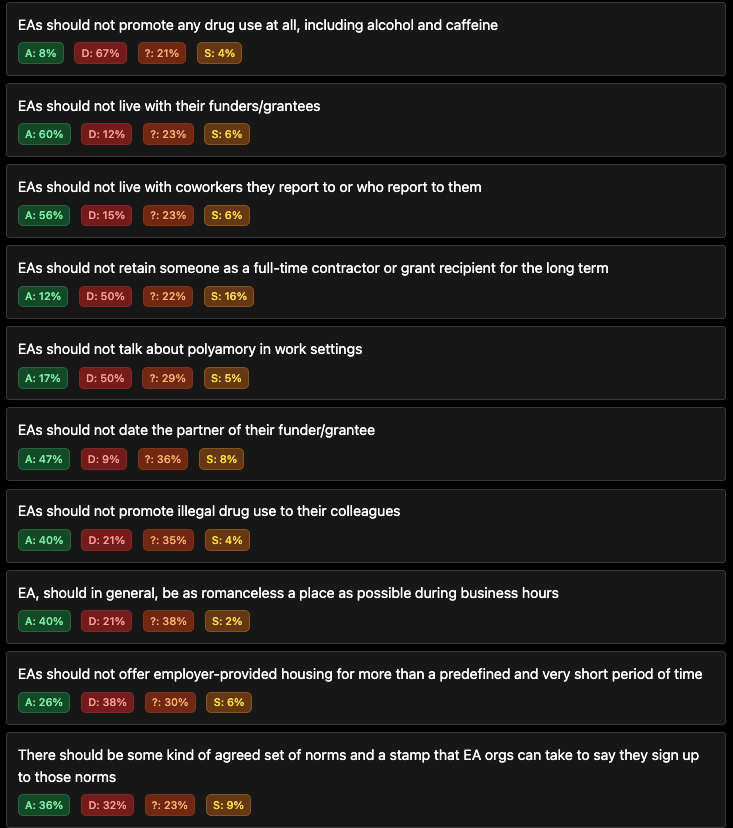A week ago @Rockwell wrote this list of things she thought EAs shoudn't do. I am glad this discussion is happening. I ran a poll (results here) and here is my attempt at a list more people can agree with: .
We can do better, so someone feel free to write version 3.
The list
- These are not norms for what it is to be a good EA, but rather some boundaries around things that would damage trust. When someone doesn't do these things we widely agree it is a bad sign
- EAs should report relevant conflicts of interest
- Eas should not date coworkers they report to or who report to them
- EAs should not use sexist or racist epithets
- EAs should not date their funders/grantees
- EAs should not retain someone as a full-time contractor or grant recipient for the long term, where this is illegal
- EAs should not promote illegal drug use to their colleagues who report to them
Commentary
Beyond racism, crime and conflicts of interest the clear theme is "take employment power relations seriously".
Some people might want other things on this list, but I don't think there is widespread enough agreement to push those things as norms. Some examples:
- Illegal drugs - "EAs should not promote illegal drug use to their colleagues" - 41% agreed, 20% disagreed, 35% said "it's complicated", 4% skipped
- Romance during business hours - "EA, should in general, be as romanceless a place as possible during business hours" - 40% Agreed, 21% disagreed, 36% said "it's complicated", 2% skipped
- Housing - "EAs should not offer employer-provided housing for more than a predefined and very short period of time" - 27% Agreed 37% Disagreed 31% said "it's complicated", 6% skipped.
I know not everyone loves my use of polls or my vibes as a person. But consensus is a really useful tool for moving forward. Sure we can push aside those who disagree, put if we find things that are 70% + agreed, then that tends to move forward much more quickly and painlessly. And it builds trust that we don't steamroll opposition.
So I suggest that rather a big list of things that some parts of the community think are obvious and others think are awful, we try and get a short list of things that most people think are pretty good/fine/obvious.
Once we have a "checkpoint" that is widely agreed, we can tackle some thornier questions.
Full poll results






I think the should/shouldn't do list is too binary. To make it onto this list it needs to be bag in almost all circumstances, which necessarily makes the list and narrow.
A list of things that you should think carefully before doing, and attempt to mitigate the downside risks if you decide to proceed, is more useful IMO. This can be broader and cover more of the grey area issues.
In my mind I'm thinking that it is roughly parallel to certain sports or certain financial investments: plenty of people come out fine, but the risks are much more elevated compared to the average/norm in that field (compared to the sports that people normally play, or compared to similar investments). I... (read more)